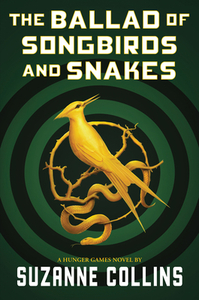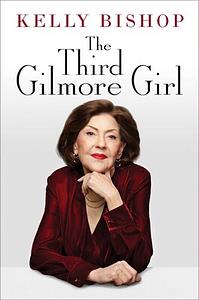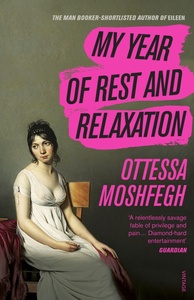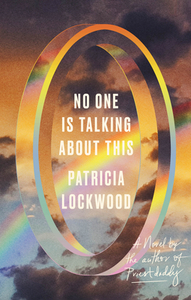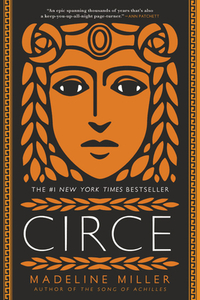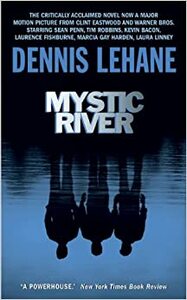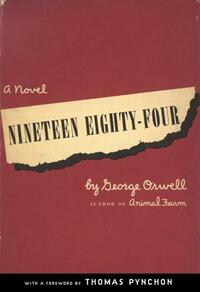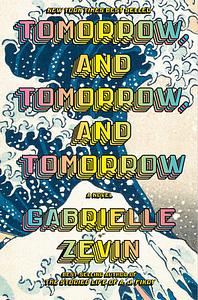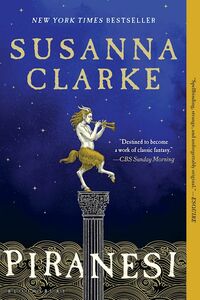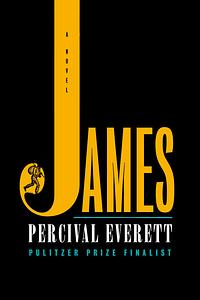You need to sign in or sign up before continuing.
Take a photo of a barcode or cover
dontjudgeabrooke's Reviews (192)
Okay, Suzanne Collins has genuinely gotta be one of the most brilliant authors of our time. Right?
I didn't read this till now because I was put off by the poor ratings, and I only ended up reading it because I wanted to get to it before Sunrise on the Reaping. But now that I've read it, I'm genuinely confused by the copious one-star reviews. I listened to the audiobook read by Santino Fontana, so maybe that helped, but I think this is a really illuminating peek into the mind of a government fanatic who's not an outright nutcase (at least not at first) and the kind of pragmatic justifications he makes for his terrible views, especially as he descends further into manipulation/deceit/hypocrisy.
At his core, he has a fundamental lack of empathy. He can appreciate others when they're doing something for him or making him look good, but once they're no longer of use to him, he's totally indifferent to their existence. His ability to rationalize all his actions, no matter how heinous, is done so well that as the reader, you can understand why Coriolanus would see things the way he does.
And hey, Lucy Gray, wanna hang out sometime? I'm also musically talented, fun, and deeply empathetic, and I've also managed to wind up with almost exclusively horrific men — including a diabolical blond who acted like he loved me but didn't care if I lived or died so long as it didn't publicly reflect poorly on him. I could also totally see himhunting me down like an animal if I threatened to expose his true nature to the world .
In fact, Coriolanus reminded me so much of that person — both are dangerously self-serving, emotionally vacant beneath the polish, and quietly ruthless when cornered — that reading this book weirdly provided me with a sort of closure.
Quotes that spoke to me:
I didn't read this till now because I was put off by the poor ratings, and I only ended up reading it because I wanted to get to it before Sunrise on the Reaping. But now that I've read it, I'm genuinely confused by the copious one-star reviews. I listened to the audiobook read by Santino Fontana, so maybe that helped, but I think this is a really illuminating peek into the mind of a government fanatic who's not an outright nutcase (at least not at first) and the kind of pragmatic justifications he makes for his terrible views, especially as he descends further into manipulation/deceit/hypocrisy.
At his core, he has a fundamental lack of empathy. He can appreciate others when they're doing something for him or making him look good, but once they're no longer of use to him, he's totally indifferent to their existence. His ability to rationalize all his actions, no matter how heinous, is done so well that as the reader, you can understand why Coriolanus would see things the way he does.
And hey, Lucy Gray, wanna hang out sometime? I'm also musically talented, fun, and deeply empathetic, and I've also managed to wind up with almost exclusively horrific men — including a diabolical blond who acted like he loved me but didn't care if I lived or died so long as it didn't publicly reflect poorly on him. I could also totally see him
In fact, Coriolanus reminded me so much of that person — both are dangerously self-serving, emotionally vacant beneath the polish, and quietly ruthless when cornered — that reading this book weirdly provided me with a sort of closure.
Quotes that spoke to me:
- The Covey believe you’re put on earth to reduce the misery, not add to it.
- He bet he could have us both, me and Mayfair… Billy Taupe's always going on about how he's happiest alone, but what he really wants is some girl to take care of him. I guess Mayfair seemed a likely candidate for the job, so he went after her. No one can pour on the charm like Billy Taupe.
*Listened to audiobook
The Woody Allen praise made me wince and her life-affirming spin on the story of the stranger walking up to her at an NYC bus stop and kissing her on the mouth made me go "hmmm," but overall this is a solid memoir and Kelly Bishop is one ballsy dame. I'm a fan of both Gilmore Girls and Broadway/A Chorus Line (fun fact! I was belting "At the Ballet" in my kitchen when my ex Facetimed me to break up after 5 years 🤗), so I found a lot of the behind-the-scenes info in here really fascinating.
Also, clinging to a DOA relationship with a cheating POS who has addiction issues because the sex is great and you hate "failing"? Couldn’t be me 😅
Also, clinging to a DOA relationship with a cheating POS who has addiction issues because the sex is great and you hate "failing"? Couldn’t be me 😅
*Listened to audiobook
Uh-oh. Am I dumb? Did this go over my head?
I don't mind an unlikeable protagonist, and it's an interesting concept. But I'm not sure I got the point, and it almost seemed like I missed something at the end — was there any payoff to her year-long experiment? Is the meaning that there is no meaning? Or is it that in the end, she realizes how precious the little things in life are and how much she loves Reva? Or that she's jealous of the tower jumper's wide-awakeness while she feels personally unable to truly wake up? Or is it meant to parody/critique the self-aggrandizing, pretentious nature of modern art? I couldn't tell you.
What I can tell you is that like 30% of this book is just lists of things: medicines, movies, food, beautiful blonde celebrities the protagonist apparently resembles, etc. Maybe the endless lists were intended to bring us into the protagonist's monotony and malaise, or maybe it was just poor, repetitive writing in a story that ultimately doesn't have much to say.
Not sure what it says about me that I thought the bits about Trevor were probably the most interesting, although it's no surprise to me that men like Trevor blow chunks and exist in DROVES.
Quotes that spoke to me:
I don't mind an unlikeable protagonist, and it's an interesting concept. But I'm not sure I got the point, and it almost seemed like I missed something at the end — was there any payoff to her year-long experiment? Is the meaning that there is no meaning? Or is it that in the end, she realizes how precious the little things in life are and how much she loves Reva? Or that she's jealous of the tower jumper's wide-awakeness while she feels personally unable to truly wake up? Or is it meant to parody/critique the self-aggrandizing, pretentious nature of modern art? I couldn't tell you.
What I can tell you is that like 30% of this book is just lists of things: medicines, movies, food, beautiful blonde celebrities the protagonist apparently resembles, etc. Maybe the endless lists were intended to bring us into the protagonist's monotony and malaise, or maybe it was just poor, repetitive writing in a story that ultimately doesn't have much to say.
Not sure what it says about me that I thought the bits about Trevor were probably the most interesting, although it's no surprise to me that men like Trevor blow chunks and exist in DROVES.
Quotes that spoke to me:
- Men don’t feel bad the way you want them to.
- I knew how this new affair would play out for him. He'd win her over with a few months of honorable declarations—"I want to be there for you. Please, lean on me. I love you!"— but when something actually difficult happened—her ex-husband sued her for custody, for example—Trevor would start to have doubts.
*Listened to audiobook
Huh. What a delightfully weird little time capsule of a book. It's definitely esoteric and pinned to a very specific moment in time on the internet, but it has a lot of fascinating things to say about how our in-person lives intersect and contrast with our digital lives and I guarantee you've never read anything else like it.
Although it seems like a very quick read, clocking in at barely 200 pages and written in a string of brief paragraphs, I found myself really wanting to chew and suck on every little morsel Lockwood has given us (don't you dare look at how long it took me to read this). To be honest, there were a handful of passages whose intended meaning I still felt I couldn't get a firm handle on even after rereading them multiple times, but I was at least able to create some personal meaning from them, which I think is fine for this book.
Quotes that spoke to me:
Although it seems like a very quick read, clocking in at barely 200 pages and written in a string of brief paragraphs, I found myself really wanting to chew and suck on every little morsel Lockwood has given us (don't you dare look at how long it took me to read this). To be honest, there were a handful of passages whose intended meaning I still felt I couldn't get a firm handle on even after rereading them multiple times, but I was at least able to create some personal meaning from them, which I think is fine for this book.
Quotes that spoke to me:
- When something of hers sparked and spread in the portal, it blazed away the morning and afternoon, it blazed like the new California, which we had come to accept as being always on fire. She ran back and forth in the flames, not eating or drinking, emitting a high-pitched sound most humans couldn’t hear. After a while her husband might burst through that wall of swimming red to rescue her, but she would twist away and kick him in the nuts, screaming, “My whole life is in there!” as the day she was standing on broke away and fell into the sea.
- The future of intelligence must be about search, while the future of ignorance must be about the inability to evaluate information. But when she looked at the smoking landscape of fathers laid out by cable news, it seemed no longer a question of intelligence or ignorance, but one of infection. Someone, a long time ago, looked at the big gray wriggle of American fathers and saw them as what they were: just weak enough, the mass host that would carry the living message.
- How strange… to live in a country where someone can say “the massacre” and you don’t have to ask which one.
- On a slow news days, we hung suspended from meathooks, dangling over the abyss. On a fast news day, it was like we had swallowed all of NASCAR and were about to crash into the wall.
- She saw her DNA streaming backward from her body like a timeline, richly peopled with the faces of distant cousins behind bars, and she was somehow the one who had put them there, by moving the clock another age past them, by being born at all.
- The words shared reality stretched and stretched, flapped at the corners like a blue felt blanket, and failed to cover everyone’s feet at once, which all shrank from the same cold. Picture the blanket with its wide satin hem, for didn’t we all have the same one?
The Best Friend Reading Challenge: Book from your best friend's favorite genre (Fantasy)
After starting off with Galatea, reading Circe confirmed that I do in fact get on very well with Madeline Miller's brand of Greek mythological retellings. I adored this book and Circe as a character. Miller's words read as if they've been gilded and dipped in honey. I'm sure it helped to read part of it while in Kauaʻi — can't think of a much more perfect setting to consume this story than on the sands of various island beaches.
After starting off with Galatea, reading Circe confirmed that I do in fact get on very well with Madeline Miller's brand of Greek mythological retellings. I adored this book and Circe as a character. Miller's words read as if they've been gilded and dipped in honey. I'm sure it helped to read part of it while in Kauaʻi — can't think of a much more perfect setting to consume this story than on the sands of various island beaches.
The Best Friend Reading Challenge: Book your best friend read in 2024
Yep, this is very much the type of meaty, morally complex psychological thriller that does it for me, in the same vein as Sharp Objects, Mare of Easttown and Prisoners. Guess what? Violence and trauma tends to beget more violence and trauma.
But uh… the movie kinda sucked? Is that a hot take? This would make for a fantastic miniseries with Jon Bernthal playing Jimmy. Get on it, HBO.
Yep, this is very much the type of meaty, morally complex psychological thriller that does it for me, in the same vein as Sharp Objects, Mare of Easttown and Prisoners. Guess what? Violence and trauma tends to beget more violence and trauma.
But uh… the movie kinda sucked? Is that a hot take? This would make for a fantastic miniseries with Jon Bernthal playing Jimmy. Get on it, HBO.
Reading this in 2025 is like getting the full 5D experience. I mean, what can I say about 1984 that hasn't already been said? It's not perfectly written, the characters are fairly cardboard-ish, and it's not a particularly enjoyable reading experience, but it should obviously be required reading for every person on the planet. I have no idea how I got through all of high school and college without seeing this on a single curriculum.
Supplemented my reading with Fido Nesti's graphic novel and the Audible production featuring Andrew Garfield, Cynthia Erivo, Andrew Scott, and Tom Hardy to get as full a comprehension as possible.
Supplemented my reading with Fido Nesti's graphic novel and the Audible production featuring Andrew Garfield, Cynthia Erivo, Andrew Scott, and Tom Hardy to get as full a comprehension as possible.
The Best Friend Reading Challenge: Book that features a friendship
Man, this came so close to being an all-time fave. My reading experience admittedly got off to a rocky start, because like another reviewer, I too found the first chapter fairly "pretentious and off-putting." But after that, it became utterly absorbing; I didn't want to put it down. It seemed destined to become a five-star book — up until the last 100 pages.
AfterMarx's death (which was unceremoniously spoiled for me while Googling something in the early part of the book, and I really wish it hadn't been), the narrative feels much more aimless and unfocused, less cohesive. In short, the wheels fall off a bit in the last quarter. I particularly didn't care for the "Pioneers" section.
A couple other complaints: By the end, I became unable to suspend my disbelief about the lack of communication for such long stretches of time between certain characters, and the grandiloquent word choices sprinkled erratically throughout felt jarring and distracting.
But on the whole, I really enjoyed this and I'd happily recommend it to pretty much anyone. As others have said, you certainly don't have to be a gamer to click with the story (it's more about the game of life hahahahaha get it), but I was even enthralled by the finer details of video game development —e.g., learning terms like "adaptive tile refresh."
It also inspired me to write this reflection on my personal relationship to video games:
I might not be the world's most avid gamer, but I certainly have my fair share of childhood memories tied to gaming, and I've always loved finding those games I do connect with that I can play for hours and sometimes even master. I, like Sadie and Sam, have fond memories of playing Oregon Trail, only my memories take place in my aunt and uncle's basement. I played with my three older cousins, and we often tried to see how quickly we could get all four of ourselves killed out on the trail.
I have a vivid memory of my brother and I getting a GameCube for Christmas, along with Mario Kart: Double Dash and the 2002 Spider-Man game. We spent the remainder of our Christmas break playing Mario Kart, and we played Spider-Man until we were stumped by a certain level. We restarted the game multiple times to see if we'd missed something crucial, but we got stuck there every time and to this day we've never made it past that part.
I remember pouring hours into multiple playthroughs of the Harry Potter and the Prisoner of Azkaban and A Series of Unfortunate Events adaptations (including spending days on end on one particular boss battle in the latter until I finally conquered it). Also regarding the ASOUE game, I remember my brother's and my little brains getting so flummoxed by one part that we went out and bought the strategy guide (not sure why we didn't do the same for Spider-Man, but it probably had something to do with a shortage of allowance money).
I spent a lot of time building houses (and basically doing nothing else) in Sims. My dad once bet me I couldn't run a mile in under 10 minutes, and when I — having never run for more than a minute in my life — proved him wrong, he gave me $100, which I used to buy a red Game Boy Advance SP. From there I upgraded to a Nintendo DS, on which I played a lot of WarioWare and used PictoChat to talk to my friends about our crushes. I remember being in awe the first time I went over to friends' houses and played Dance Dance Revolution and Guitar Hero. During our parents' football parties, my brother and I would take the other kids downstairs to play Karaoke Revolution.
In recent years, I've continued gaming casually. I usually gravitate toward puzzle games, fitness games, "cozy" games, cooking sims, and games that play into my childhood nostalgia. I'm still not sure I'd call myself a "gamer," mostly because I don't feel I devote enough time to it to earn the title — I just have too wide a variety of hobbies/interests. But I can certainly still appreciate the art of a well-made game, and it's always a pleasure when I find one I really click with.
Man, this came so close to being an all-time fave. My reading experience admittedly got off to a rocky start, because like another reviewer, I too found the first chapter fairly "pretentious and off-putting." But after that, it became utterly absorbing; I didn't want to put it down. It seemed destined to become a five-star book — up until the last 100 pages.
After
A couple other complaints: By the end, I became unable to suspend my disbelief about the lack of communication for such long stretches of time between certain characters, and the grandiloquent word choices sprinkled erratically throughout felt jarring and distracting.
But on the whole, I really enjoyed this and I'd happily recommend it to pretty much anyone. As others have said, you certainly don't have to be a gamer to click with the story (it's more about the game of life hahahahaha get it), but I was even enthralled by the finer details of video game development —e.g., learning terms like "adaptive tile refresh."
It also inspired me to write this reflection on my personal relationship to video games:
I might not be the world's most avid gamer, but I certainly have my fair share of childhood memories tied to gaming, and I've always loved finding those games I do connect with that I can play for hours and sometimes even master. I, like Sadie and Sam, have fond memories of playing Oregon Trail, only my memories take place in my aunt and uncle's basement. I played with my three older cousins, and we often tried to see how quickly we could get all four of ourselves killed out on the trail.
I have a vivid memory of my brother and I getting a GameCube for Christmas, along with Mario Kart: Double Dash and the 2002 Spider-Man game. We spent the remainder of our Christmas break playing Mario Kart, and we played Spider-Man until we were stumped by a certain level. We restarted the game multiple times to see if we'd missed something crucial, but we got stuck there every time and to this day we've never made it past that part.
I remember pouring hours into multiple playthroughs of the Harry Potter and the Prisoner of Azkaban and A Series of Unfortunate Events adaptations (including spending days on end on one particular boss battle in the latter until I finally conquered it). Also regarding the ASOUE game, I remember my brother's and my little brains getting so flummoxed by one part that we went out and bought the strategy guide (not sure why we didn't do the same for Spider-Man, but it probably had something to do with a shortage of allowance money).
I spent a lot of time building houses (and basically doing nothing else) in Sims. My dad once bet me I couldn't run a mile in under 10 minutes, and when I — having never run for more than a minute in my life — proved him wrong, he gave me $100, which I used to buy a red Game Boy Advance SP. From there I upgraded to a Nintendo DS, on which I played a lot of WarioWare and used PictoChat to talk to my friends about our crushes. I remember being in awe the first time I went over to friends' houses and played Dance Dance Revolution and Guitar Hero. During our parents' football parties, my brother and I would take the other kids downstairs to play Karaoke Revolution.
In recent years, I've continued gaming casually. I usually gravitate toward puzzle games, fitness games, "cozy" games, cooking sims, and games that play into my childhood nostalgia. I'm still not sure I'd call myself a "gamer," mostly because I don't feel I devote enough time to it to earn the title — I just have too wide a variety of hobbies/interests. But I can certainly still appreciate the art of a well-made game, and it's always a pleasure when I find one I really click with.
I've never read another book with such a haunting, immersive atmosphere. In fact, the setting manages to feel like the central character and the bulk of the plot. While it's undeniably magical and the eventual mystery is fairly intriguing, I wish there'd been a little more complexity/depth to the plot. However, Piranesi's endless wonder and devoted care to the world around him is incredibly endearing. And the fact that the typeface is inspired by the carved letting often used for stone monuments is a very cool touch.
The story also led me down a couple rabbit holes to learn about some fascinating real-life philosophers, including:
The story also led me down a couple rabbit holes to learn about some fascinating real-life philosophers, including:
- J.W. Dunne: Believed our perception of time as linear is an illusion; that the past, present, and future are actually continuous in a higher-dimension reality, accessible through dreams, where we can sometimes experience fragments of the future through "precognitive dreams" due to our consciousness momentarily slipping beyond the present moment; that we only experience them sequentially due to our mental perception. This theory is often referred to as the "serial universe" concept or "serialism." (Arrival, anyone?)
- Rudolf Steiner: Believed a non-material, spiritual world influences the material world. Thought humans were once more fully involved in the world's spiritual processes but became restricted by their attachment to material things.
Struggling a bit to decide how I feel about this book. It took me a little while to get into, because the first part primarily consisted of hitting major story beats from Huckleberry Finn (which I read concurrently) while inside Jim's mind. However, by the second/third parts, I was much more invested.
But after reading this and The Trees, I'm just not sure Everett's writing style does it for me. I don't feel emotionally connected to it. James is definitely fast-paced — but maybe a little too fast-paced? The big moments didn't feel as weighty as they ought to have felt; it didn't seem like they were given the proper opportunity to "breathe." I think I was expecting a bit more heft, more of a punch, but maybe I just had my expectations set too high from the unanimously amazing reviews.
I will say the twist ofJames turning out to be Huck's father really pleasantly surprised me. That's the kind of thing I love in retellings. I would've loved to have learned more about James' relationship with Huck's mother . In fact, I would've liked to have learned more about James in general.
In another Storygraph review, the user gammyreads writes, "What did not work for me was the main character, James, who I felt was one-dimensional. He was good at everything. He had no flaws, no complexity. He was a slave, a fugitive, a father, a husband, he could read yet all I really knew about him were these descriptors. I didn’t feel as if I got to know James any more than when I had reread The Adventures of Huckleberry Finn in preparation for reading this story. He was a character that endured much but never changed. He was always the best in every situation. It seemed to me that James’ experiences were a composite of the life of a slave so that the reader could appreciate those horrors. What I didn’t learn was James’ own journey."
I think this accurately sums up why this book didn't reach the four- or five-star level for me. I came in expecting to really get inside James' head, to learn his whole three-dimensional story, but it mostly felt like I was just watching through his eyes as he experienced a number of harrowing events in quick succession. And as one last note, the sheer number of coincidences took me out of the story a few times; it often seemed like only about 10 people existed in the whole South.
But overall, this was a solid, thrilling read that felt like it served up some justice for James and the other overlooked, misrepresented Black characters in classic literature.'
Quotes that spoke to me:
But after reading this and The Trees, I'm just not sure Everett's writing style does it for me. I don't feel emotionally connected to it. James is definitely fast-paced — but maybe a little too fast-paced? The big moments didn't feel as weighty as they ought to have felt; it didn't seem like they were given the proper opportunity to "breathe." I think I was expecting a bit more heft, more of a punch, but maybe I just had my expectations set too high from the unanimously amazing reviews.
I will say the twist of
In another Storygraph review, the user gammyreads writes, "What did not work for me was the main character, James, who I felt was one-dimensional. He was good at everything. He had no flaws, no complexity. He was a slave, a fugitive, a father, a husband, he could read yet all I really knew about him were these descriptors. I didn’t feel as if I got to know James any more than when I had reread The Adventures of Huckleberry Finn in preparation for reading this story. He was a character that endured much but never changed. He was always the best in every situation. It seemed to me that James’ experiences were a composite of the life of a slave so that the reader could appreciate those horrors. What I didn’t learn was James’ own journey."
I think this accurately sums up why this book didn't reach the four- or five-star level for me. I came in expecting to really get inside James' head, to learn his whole three-dimensional story, but it mostly felt like I was just watching through his eyes as he experienced a number of harrowing events in quick succession. And as one last note, the sheer number of coincidences took me out of the story a few times; it often seemed like only about 10 people existed in the whole South.
But overall, this was a solid, thrilling read that felt like it served up some justice for James and the other overlooked, misrepresented Black characters in classic literature.'
Quotes that spoke to me:
- Folks be funny lak dat. Dey takes the lies dey want and throws away the truths dat scares ’em.
- I hated the world that wouldn't let me apply justice without the certain retaliation of injustice.
- Belief has nothing to do with truth.
*Listened to audiobook
